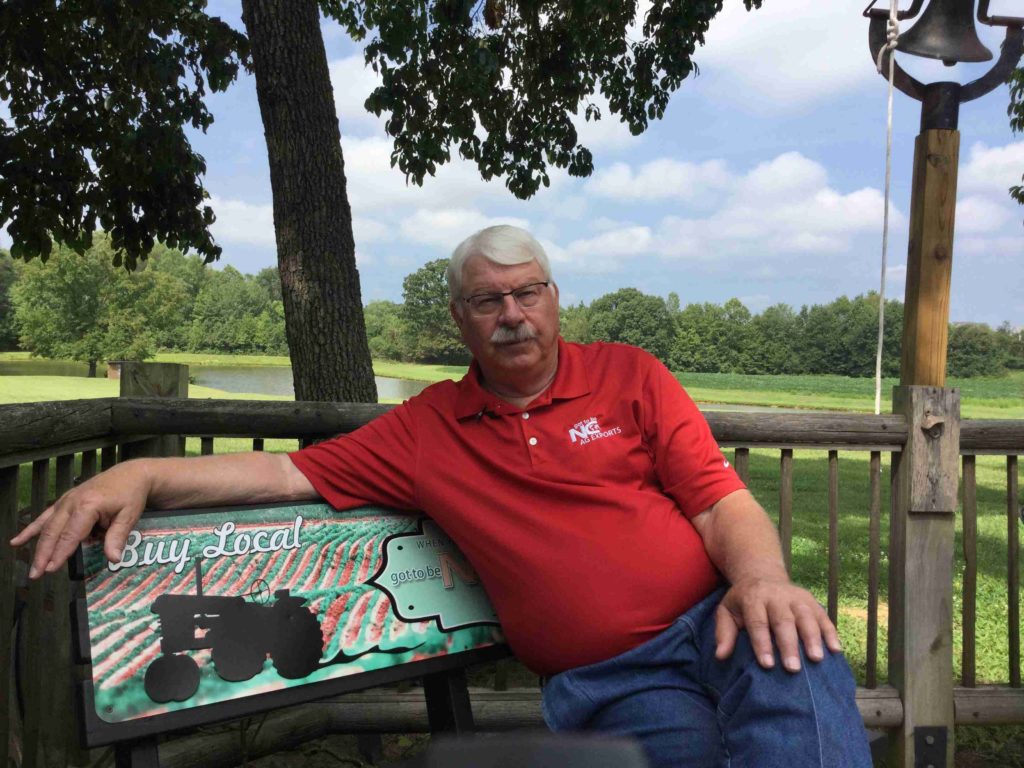In North Carolina, an estimated $1.86 billion of land privately owned in North Carolina is held as heirs’ property. Heirs’ property occurs when land is passed down through generations and owned by many descendants with an undivided interest in the land.
Currently, in our state, anyone who inherits or purchases even a small interest of heirs’ property can potentially force other owners to sell against their will, often for well below fair market value. Owners of family-owned properties are vulnerable to involuntary land loss resulting from forced partition action proceedings.
Right now, a uniform bill is being adopted by state legislators across the Eastern United States. Enacting the Uniform Partition of Heirs Property Act (UPHPA) in North Carolina will address how current state laws leave landowners of heirs’ property vulnerable to involuntary land loss and provide a path to prevent future loss.
The North Carolina General Assembly is considering adoption of the bill in an effort to safeguard families from forced sales and provide them with greater access to building generational wealth through land equity.
The UPHPA will:
- give families a solid chance at keeping the land in the family when one or more owners wants to divide or sell the land through a partition action.
- allow more time for families to make thoughtful decisions about how to sell their land. All members would get the first right of refusal – the contractual right to enter into a business transaction with a person or company before anyone else can.
- create protections for the family to gain fair market value for their land.
- reduce the burden of county clerks by providing a standardized procedure to follow when a heirs’ property is up for sale.
Brandon A. Robinson, CTNC Board President, is an estate planning and corporate law attorney practicing in North Carolina. Below, he shares how the Uniform Act and other resources will provide support to families seeking to stop forced sales that result in land loss.
Heirs’ property is a problem that derives largely from either inadequate or nonexistent legally binding documents that clearly state ownership and heirs’ rights. Heirs’ property is created when land is inherited without a clear title or documented legal ownership. While heirs’ property can impact any family when a landowner dies without a will or trust, this problem disproportionately impacts Black and rural families who have historically lacked either the access to high-quality legal services, or a willingness to avail themselves of such services.
Under North Carolina law, just one concurrent owner can initiate a partition proceeding, which usually results in either the physical partition, or the forced sale, of the land, depending on what the Clerk of Superior Court finds to be the most equitable solution. For example, if you are a developer, you can entice just one family heir to sell his/her stake to you and force a sale of the entire property. This happened to a family of color in Raleigh. The family had ownership of a plot of land that was rural Wake County when purchased in the 1940s. Over the years, the property had been rezoned and became more valuable as the capital city sprawled. Unfortunately, the family fell prey to a land developer who bought one heir’s interest for nominal consideration and forced a sale through a partition proceeding. The developer gained title to its initial fractional share for well below fair market value, yet reaped a windfall when the other heirs could not buy out the developer in order to keep their family land; the result was that the developer gained full control of family legacy property that could then be sold or developed for value many times greater than what the developer paid.
If the Uniform Act were to be adopted by the North Carolina General Assembly, the developer would have been preempted in favor of providing family heirs a first right of refusal, and even if a sale did eventually occur through the partition process the family would have a better chance to realize fair market value for the property, based on enforcement tools at the Clerk of Superior Court’s discretion. This would allow all families to have access to clear rules and protections of their land. This offers a way to empower marginalized people who do not have the same access to power and resources to stop a forced sale.
Adopting a Uniform Act Will Give NC Families the Best Path Toward Resolution
Alton Perry, CTNC Board Member, is a Forest Management-Land Retention Consultant with the Roanoke Electric Cooperative. He works with landowners to sustainably manage their property through agriculture, forestry, and revenue generation. Below, he shares how the Uniform Act can be a tool to protect families from forced sales that result in land loss.
The UPHPA intent is to ensure due and equitable process of heirs’ property disputes. Many organizations, attorneys, and community-based organizations offer legal assistance to heirs’ property owners. North Carolina legislators and clerks of court, aided by the process created by the Uniform Act, could offer solutions to families and reduce land lost to forced sales, by referring heirs’ property owners to these resources, therefore reducing the number of cases that would result in a forced partition action.
Heirs’ Property Rights is a problem that cuts across rural and urban divides. All families with multigenerational roots could wrestle with these problems. This legislation brings basic fairness, protection of ownership, and a clear and streamlined process for land ownership and land transfers to our state. This helps all people – white owners, marginalized urban populations, and descendants of enslaved people in the South. This will benefit all of North Carolina.
Ways to get involved.
CTNC views the adoption of the Uniform Act as an integral part of our mission to build resilient and just communities through conservation solutions. Without a clear path to prove or resolve ownership of land, NC families lose the ability to leverage their land for conservation and economic value or to access federal relief funds after disasters.
As a member of the CTNC community, we hope you will stand with us to advocate for smart conservation policies that allow every North Carolinian to benefit from conservation and have the tools to build communities that are resilient to the impacts of climate change.
Read more:



